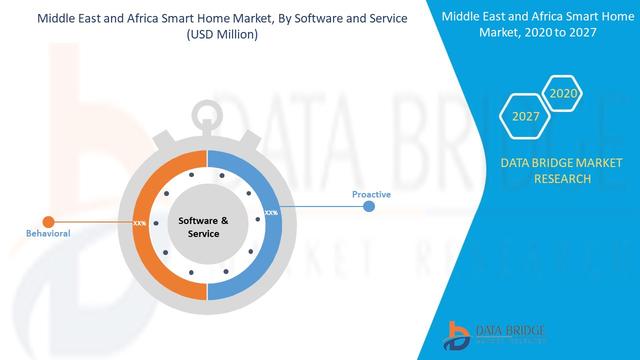Dubai– The Middle East, Turkey and Africa (META) smart home devices market saw its value increase 21.6% year on year in value last year, according to the latest insights from International Data Corporation (IDC). The global technology research and consulting firm's newly updated Worldwide Quarterly Smart Home Devices Tracker shows that the META market's value reached $9.5 billion in 2021.
The key growth drivers were vendor-led awareness campaigns, the local customization of products, and improved user experiences. The compatibility capabilities of most devices and the ease with which they can be connected — mainly via existing household Wi-Fi connections — have also been key factors in pushing end users to embrace the convenience of smart home devices.
"One of the major challenges previously holding the market back was the fact that many of the devices available on the market were wired and needed to be retrofitted, often requiring the help of a technician to install them," says Isaac T. Ngatia, a senior research analyst at IDC in charge of smart home devices category. "However, most of the products now being brought to market are simply 'plug and play'. Indeed, the new generation of smart products such as doorbells, cameras, and lightbulbs, for example, are extremely easy to install.
"Some vendors have also invested heavily in above-the-line marketing and communication campaigns that have brought a greater understanding of the benefits of smart home devices to the wider market.The need for continuous communication around smart home devices is key to driving awareness, given the wide array of products that make up this diverse industry."
The region's channel/distribution landscape expanded through 2021 as more players entered the market. The most prominent of these players are the region's telecom operators, with some of them expanding their home subscription offerings to now include smart home devices. Retailers at various levels of the market have also entered the fray, stocking a varied selection of smart home devices. This is in addition to the myriad online offerings, which continue to be the main source of smart home devices in the region.
"Customizing devices to suit local tastes and preferences has been another major step in the right direction for the market," says Ngatia. "For example, we have seen the introduction of smart speakers featuring Arabic in local dialects. This is a key step in raising interest, not only in the smart speaker sub-category, but also in the overall concept of having smart devices in the home."

Entertainment continued to be a major growth driver through 2021, with many people forced to stay at home for long periods due to the COVID-19 pandemic. Demand for streaming services, casual TV viewing, and gaming spurred the growth of streaming sticks and to some extent smart TVs, although the latter was impacted by supply shortages of panels.
To learn more about IDC's Worldwide Quarterly Smart Home Devices Tracker, please contact Sheila Manek at smanek@idc.com or on +971 4 446 3154.
About IDC
International Data Corporation (IDC) is the premier global provider of market intelligence, advisory services, and events for the information technology, telecommunications, and consumer technology markets. With more than 1,200 analysts worldwide, IDC offers global, regional, and local expertise on technology, IT benchmarking and sourcing, and industry opportunities and trends in over 110 countries. IDC's analysis and insight helps IT professionals, business executives, and the investment community to make fact-based technology decisions and to achieve their key business objectives. Founded in 1964, IDC is a wholly owned subsidiary of International Data Group (IDG), the world's leading tech media, data, and marketing services company. To learn more about IDC, please visit www.idc.com. Follow IDC on Twitter at @IDC and LinkedIn. Subscribe to the IDC Blog for industry news and insights.
IDC in the Middle East, Turkey, and Africa
For the Middle East, Turkey, and Africa region, IDC retains a coordinated network of offices in Riyadh, Nairobi, Lagos, Johannesburg, Cairo, and Istanbul, with a regional center in Dubai. Our coverage couples local insights with international perspectives to provide a comprehensive understanding of markets in these dynamic regions. Our market intelligence services are unparalleled in depth, consistency, scope, and accuracy. IDC Middle East, Africa, and Turkey currently fields over 130 analysts, consultants, and conference associates across the region. To learn more about IDC MEA, please visit www.idc.com/mea. You can follow IDC MEA on Twitter at @IDCMEA.
Copy the following code into your site
Coverage
Regions Covered
Middle East and Africa,Turkey
Topics Covered
Home automation,Networked consumer devices








